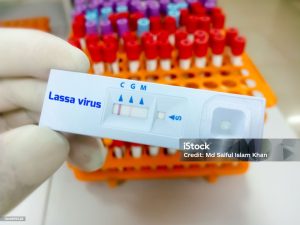
Suriname, Honduras, and Belize to Issue First Paris Agreement Carbon Credits under Article 6.

Suriname announced its intention to sell the world’s first carbon credits under the Paris Agreement, Article 6 during NY Climate Week 2023. The carbon credits, called Internationally Transferable Mitigation Outcomes (ITMOs), will help developed countries who fail to hit their national climate pledges meet their targets and in return provide climate finance to rainforest nations who have gone beyond their ambitions. A global stock take of every country’s climate pledge will take place at COP28 in Dubai in December to gauge whether the planet is on course to slow the climate emergency. ITMOs will also be available for companies to purchase to hit net zero targets.
Earlier in the month, Suriname had its REDD+ results validated by the UN for 4.1 million emissions reductions in 2020 and a further 4.8 million in 2021. Its 2021 results will be eligible for sale as ITMOs. Marciano Dasai, Suriname’s minister of spatial planning and environment, said the country hopes to sell the credits for $30/tCO2e.
Three other forest-rich countries are also following Suriname’s lead offering up tens of millions of sovereign REDD+ units under the Paris Agreement. Honduras, Belize, and the Democratic Republic of Congo (DRC) are to issue post-2020 forestry units under the UNFCCC REDD+ framework. Honduras announced 10 million REDD+ vintage 2021 and 2022 credits due by December. Lucky Medina, the country’s environment and natural resources minister restated the current ban on voluntary carbon projects, confusingly called REDD+. He said that the ban will remain, and that the country has chosen to prioritize UN efforts. Honduras is committed to saving its rainforests. The new administration intends to spend $33 million per year to protect its forest, involving 10% of the army, according to the minister
Belize also expects to issue at least 10 million units of 2021-23 vintages, vice-minister for climate Kenrick Williams confirmed on Wednesday. The country has already carried out internal assessments based on recent conservation efforts under UN and plans to submit data to the UNFCCC in December. Belize saw results of around 5.6 million emissions reductions for the 2016-18 period, then 11 million for 2019-20. Williams said Belize expects to offer the ITMOs in mid-2024, once the UNFCCC verification process is finished.
Also, Honduras announced that they would become the new country chair for CfRN for 2024. An official signing ceremony took place with the President of Honduras, Xiomara Castro, minister Lucky Medina and Vice Minister Malcolm Stufkens. This was followed by an official handing over ceremony on Friday at the CfRN offices. The Papua New Guinea environment minister, Simon Kilepa and Lucky Medina took part in the ceremony.
“CfRN and Honduras have had a strong and longstanding friendship. I am thrilled that we are now formally cementing this relationship, and am excited that they will become our next co-chair,” said Federica Bietta, Managing Director of CfRN
Finally, CfRN signed a Memorandum of Understanding (MOU) with the Democratic Republic of Congo (DRC). DRC has signaled the intention to issue sovereign REDD+ units and sought support from CfRN to help it accelerate its participation in the UN REDD+ framework. DRC holds the world’s second largest forest reserves in the world and will now receive support in capacity-building as well as help to sell its credits. At the official ceremony in New York, the Environment Minister, Eve Bazaiba signed the MoU alongside Kevin Conrad, Executive Director, CfRN
Like DRC, Honduras also signed an MOU with the CfRN to provide policy support and capacity-building within the UNFCCC REDD+ framework and to help it sell its UNFCCC REDD+ credits and ITMOs.









